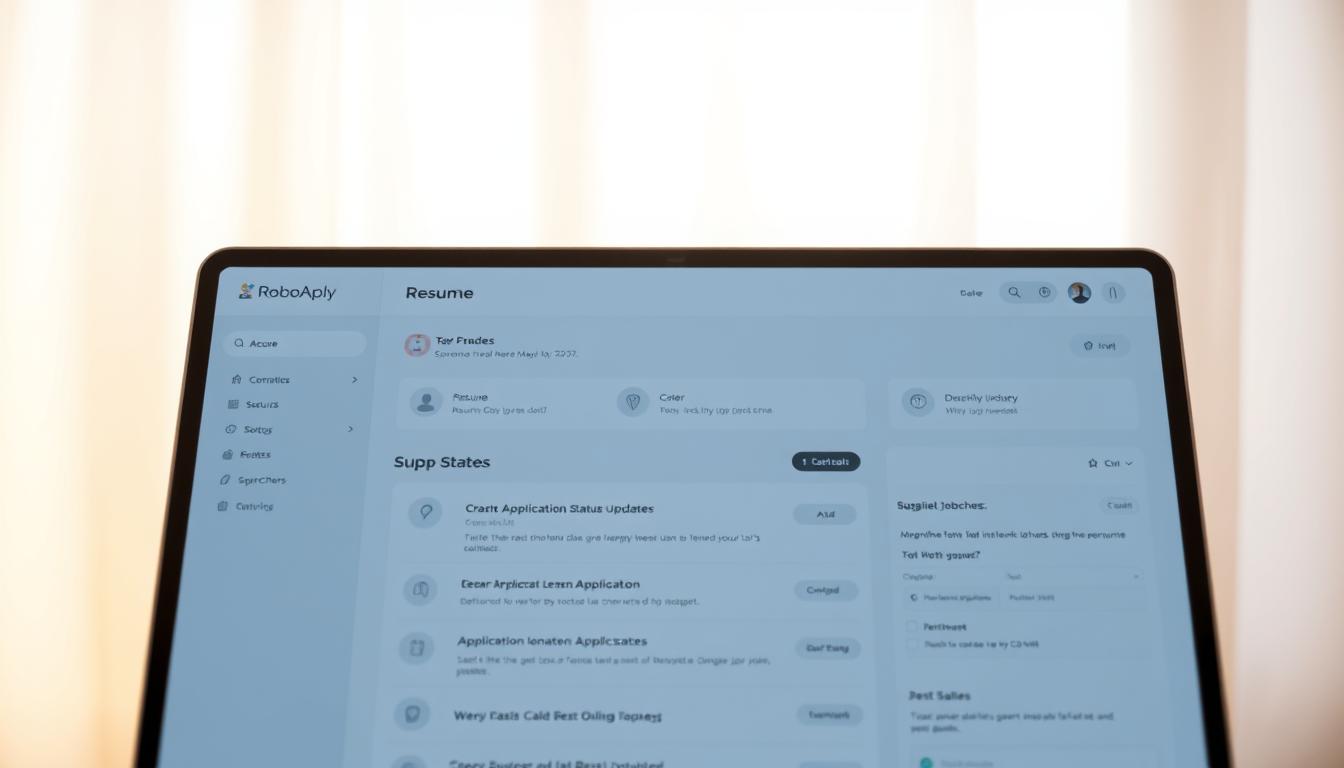So, you’re looking to land an entry-level data analyst job in 2025? Awesome! The job market for data folks is still pretty hot, and companies really need people who can make sense of their data. But getting your foot in the door means having a resume that stands out. It’s not just about listing skills; it’s about showing how you can actually help a business. This article will walk you through some solid entry-level data analyst resume examples and give you tips to make yours shine.
Key Takeaways
- Your entry-level data analyst resume should clearly show off your technical skills, like knowing SQL or Python, and also highlight any projects you’ve worked on.
- Even without tons of work experience, you can impress hiring managers by including relevant coursework, personal projects, or volunteer work that demonstrates your analytical abilities.
- Make sure your resume is easy to read and focuses on what you can do for the company, not just what you’ve done in the past. Think about how your skills solve problems.
1. Entry-Level Data Analyst
So, you’re aiming for that first data analyst gig? Awesome! As an entry-level data analyst, you’ll be diving into data sets to help businesses make smarter choices. Your resume needs to show you’re ready to roll up your sleeves and get analytical.
Think of your resume as your personal sales pitch. It needs to highlight what you bring to the table, even without tons of experience. Let’s break down how to make it shine.
First things first, focus on what you do have. Did you ace a statistics course? Rock a data-related project in college? These are gold! Make sure to show off any internships or coursework that involved data analysis.
Highlight your technical skills. This is where you show you know your stuff. Mention your proficiency in tools like Excel, SQL, and data visualization software such as Tableau or Power BI. If you’ve used Python or R, definitely include those too!
Don’t just list skills; show them in action. Use examples to demonstrate how you’ve used these tools to solve problems or gain insights. For example:
- Used Excel to analyze sales data and identify trends, leading to a 10% increase in targeted marketing efforts.
- Developed SQL queries to extract and clean data from a database for a class project.
- Created interactive dashboards in Tableau to visualize customer behavior and improve decision-making.
Also, it’s not just about the tech skills. Show off your soft skills too! Problem-solving and communication are super important. Can you explain complex data in a way that everyone understands? That’s a huge plus.
Remember, your resume is a story. Tell it well. Show how your skills and experiences make you the perfect fit for the job. Tailor your resume to each specific job description, highlighting the skills and experiences that are most relevant.
Finally, don’t forget the basics: a clean layout, clear language, and no typos! A polished resume shows you pay attention to detail, which is a must for any data analyst. RoboApply can help you tailor your resume to specific job descriptions, making sure you highlight the skills and experiences that are most relevant. Check out these resume examples to get started!
2. Junior Data Analyst

A Junior Data Analyst digs into raw figures, cleans them up, and helps teams spot trends without the messy details. RoboApply can polish your resume bullets so hiring managers don’t skip over your wins. If you want to see different layouts, take a look at stocker resume examples.
Here are the day-to-day tasks you’ll tackle:
- Collect and organize large datasets into usable formats
- Clean and prep data using SQL and Excel
- Create basic reports and visual charts to highlight patterns
- Validate findings and flag anomalies for senior analysts
- Collaborate with cross-functional teams to support ad hoc requests
| Skill | Proficiency (1-5) |
|---|---|
| Excel | 4 |
| SQL | 4 |
| Python | 3 |
| Tableau | 3 |
Start by listing the tools and methods you know best, then match those to the job post. For core roles, emphasize your experience in relevant skills from day one.
When you write your resume: keep sentences tight, use action verbs, and quantify outcomes when you can. entry-level candidates shine by showing quick learning and solid foundation.
A crisp, to-the-point bullet jumps off the page. To see more styles, flip through these 2025 Data Analyst resume examples.
3. Senior Data Analyst

Okay, so you’re not fresh out of college anymore. You’ve been around the block, crunched some numbers, and probably have a few battle scars from that one time the CEO misinterpreted your report (we’ve all been there). A senior data analyst resume needs to show you’re not just good at analyzing data, but you can lead, mentor, and drive business decisions. RoboApply can help you tailor your resume to highlight these leadership skills.
Here’s the deal: you need to prove you’re more than just a SQL wizard. You’re a business partner who uses data to solve problems.
Consider these points for your resume:
- Quantifiable Achievements: Instead of saying "Improved reporting," say "Reduced reporting time by 30% leading to faster decision-making."
- Leadership Experience: Highlight any experience where you mentored junior analysts or led data-related projects.
- Business Acumen: Show how your analysis directly impacted business outcomes, like increased revenue or reduced costs.
A senior data analyst resume should focus on the impact you’ve made, not just the tasks you’ve completed. Think about how your work has influenced business strategy and outcomes.
Here’s a simple example of how to frame your experience:
Previous Role: Data Analyst Lead
- Led a team of 3 junior analysts in developing and maintaining key performance indicators (KPIs) for the sales department.
- Developed a new customer segmentation model that increased targeted marketing campaign effectiveness by 15%.
- Reduced data processing time by 20% by implementing a new data pipeline using cloud-based technologies.
Remember, your resume is your sales pitch. Make it count. Showcase your experience with public accounting resume examples to demonstrate your expertise.
4. Marketing Data Analyst

Marketing Data Analysts are super important these days. Companies really want to make decisions based on data, so these analysts are in high demand. When you’re writing your resume, you gotta show off that you know data analysis, marketing stuff, and can talk to people about it. RoboApply can help you tailor your resume to specific job descriptions, ensuring relevant skills and experiences are highlighted.
It’s also a good idea to keep up with the latest trends, like AI and machine learning.
Here’s what you should keep in mind:
- Make sure to highlight your marketing knowledge, like understanding customer segments.
- Show off your data skills, like knowing SQL, Python, or R.
- Talk about projects where you used data to improve marketing campaigns.
Employers want to see that you can keep up with the latest trends, like artificial intelligence, machine learning, and automation. Make sure to highlight your experience and adaptability in these areas on your resume to stand out.
Here are some skills you might want to include:
- Data Visualization
- Web Analytics
- Email Marketing
- Market Research
- Microsoft Power BI
To make your resume stand out, use action verbs and target your resume to the job. For example, instead of saying "I worked on marketing campaigns," say "Designed campaign strategies". This shows you’re a strong hire. Also, make sure your resume includes a marketing data analyst resume example that highlights specific analytical projects.
5. Analytics Manager
Analytics Managers are more focused on managerial responsibilities than hands-on data analysis. However, a strong understanding of data analysis is still needed. Let’s look at what makes a good resume for this role.
Tips to Help You Write Your Analytics Manager Resume in 2025
- Prioritize your technical skills. While soft skills like communication and time management are important, technical skills are key. Show that you’re proficient in areas like data warehousing, Python, SQL, or data visualization. Check out this resource to find hard skills to include in your resume.
- Demonstrate you are up-to-date with the latest industry trends. Data analytics is always changing, so show that you’re a lifelong learner. Mention things like artificial intelligence and cloud computing. Staying current is key for analytics managers.
- Emphasize data analysis tools and languages. You’ll need to be good with tools and languages like Python, R, SQL, and data visualization software. Highlight your expertise and any relevant certifications. This shows your technical competence.
- Showcase your project management experience. Analytics Managers often lead projects. Describe how you’ve managed analytics projects from start to finish, including setting goals, managing resources, and presenting findings. Quantify your achievements to show the impact of your work. Learn how to say you manage employees on a resume.
It’s important to highlight your experience in managing analytics projects and delivering actionable insights to stakeholders. Show your proficiency in data analysis tools and programming languages, and your ability to communicate complex data-driven insights to non-technical team members.
Skills You Can Include on Your Analytics Manager Resume
Here are some skills you might want to include:
- Machine Learning
- Business Analysis
- Python (Programming Language)
- Predictive Analytics
- Strategy
- Data Science
- Data Visualization
- SQL
- SAS
Remember to tailor your resume to highlight these skills and experiences. Data Analytics Managers lead cross-functional teams to develop data-driven business strategies and solutions. RoboApply can help you tailor your resume to match the specific requirements of the job description, increasing your chances of getting an interview.
6. Data Analyst

Okay, so you’re just a "Data Analyst." No "Junior," no "Senior," just plain old Data Analyst. This is where things get interesting because the experience level can vary wildly. You might have a couple of years under your belt, or you could be a seasoned pro who just doesn’t have "Senior" in their title. Either way, your resume needs to show you can handle the job.
Think of this as the Goldilocks zone of data analysis. Not too entry-level, not too advanced, but just right. You’ve probably worked on a variety of projects, maybe even led a few. You know your way around SQL, Python, and Excel, and you’re comfortable presenting your findings to stakeholders. Now, how do you get all that onto a single page?
Here’s the thing: your resume needs to be tailored to each job you apply for. Don’t just send out the same generic resume to every company. Read the job description carefully and highlight the skills and experience that are most relevant. If they’re looking for someone with experience in data visualization, make sure your Tableau skills are front and center. If they need someone who can build predictive models, emphasize your machine learning experience. RoboApply can help you tailor your resume to specific job descriptions, making sure you highlight the most relevant skills and experience.
Here are some things to keep in mind:
- Quantify your accomplishments. Don’t just say you "improved data quality." Say you "improved data quality by 20%, resulting in a 10% increase in sales leads."
- Use action verbs. Start your bullet points with strong action verbs like "analyzed," "developed," "implemented," and "managed."
- Showcase your technical skills. List all the tools and technologies you’re proficient in, from SQL and Python to Tableau and Power BI.
Remember, your resume is your first impression. Make it count. Highlight your accomplishments, showcase your skills, and tailor it to each job you apply for. With a little effort, you can land your dream job as a Data Analyst.
To help you get started, consider using a custom resume guide designed for data analysts. It can provide valuable insights and tips for crafting a compelling resume.
Here’s a simple table to illustrate how to quantify your achievements:
| Achievement | Before | After |
|---|---|---|
| Data Quality | "Improved data quality" | "Improved data quality by 20%" |
| Sales Leads | "Increased sales leads" | "Increased sales leads by 10%" |
| Report Generation Time | "Reduced report generation time" | "Reduced report generation time by 15%" |
Good luck with your job search!
Want to know how to become a data analyst? It’s a great job where you get to solve puzzles using numbers and facts. If you like finding answers in data, this might be for you. Learn more about this exciting career path and how to get started by visiting our website.
Wrapping Things Up
So, there you have it. Getting your first data analyst job means having a resume that really shows what you can do. It’s not just about listing skills; it’s about showing how those skills help solve problems and make things better. Remember, every example we looked at today had one thing in common: they were clear and to the point. Take what you learned, put it into your own resume, and you’ll be in a good spot to start your career in data.
Frequently Asked Questions
What’s the most important thing to put on an entry-level data analyst resume?
To land an entry-level data analyst job, you should really focus on showing off your skills. This means highlighting any school projects, internships, or even personal projects where you worked with data. Make sure to list the tools you know how to use, like Excel, SQL, and data visualization programs. Also, show that you’re good at solving problems and can explain complicated data in a simple way. Using RoboApply can help you make sure your resume hits all these points and stands out to hiring managers.
Can I get a data analyst job without much work experience?
Yes, absolutely! Even if you don’t have a lot of work experience, you can still make your resume strong. Talk about relevant classes you’ve taken, any group projects where you analyzed data, or even volunteer work where you used data skills. If you’ve done any online courses or earned certificates in data analysis, those are great to include too. The key is to show what you’ve learned and how you can apply it, even if it’s not from a traditional job. RoboApply can guide you on how to best present these experiences.
What technical skills are a must-have for an entry-level data analyst?
When you’re just starting out, employers want to see that you can handle data. This means knowing how to use tools like Microsoft Excel for organizing and looking at data, SQL for getting information from databases, and tools like Tableau or Power BI for making charts and graphs that explain data clearly. It’s also super helpful to show you understand basic statistics and can think logically to solve problems. Don’t forget to mention any programming languages you know, like Python or R, if you’ve used them for data tasks. RoboApply can help you highlight these technical skills effectively on your resume.


















